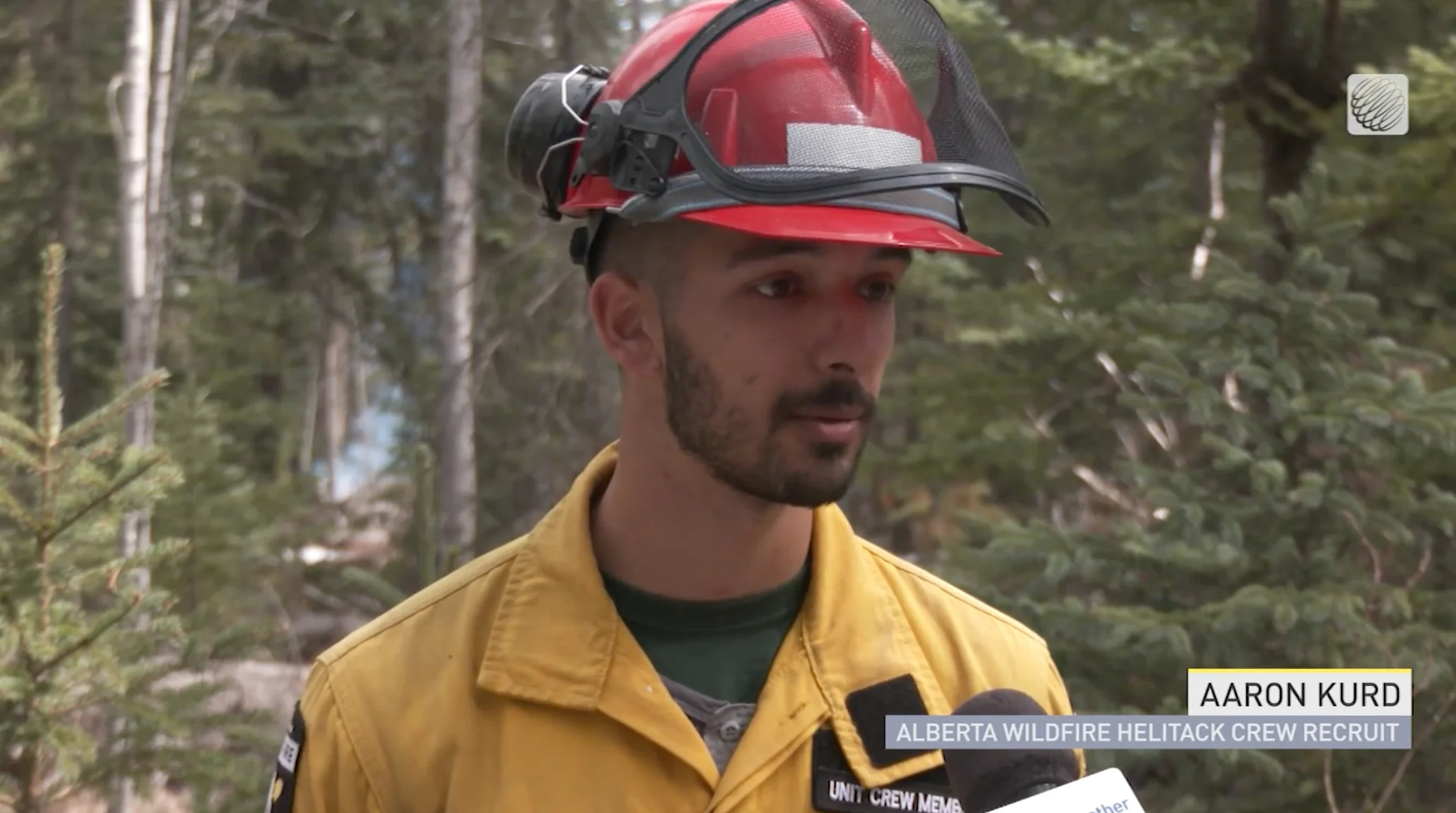
Alberta's wildfire season: how 500 new firefighters are preparing for it
When Aaron Kurd watched the news coverage of Canada's historic wildfire season in 2023, he could not help but take notice.
"I saw how the wildfires were impacting the communities here in Alberta and how it was actually impacting the rest of Canada," he said. "I felt like that this could be a cause that I could contribute to."
Kurd, 26, applied to be a wildfire fighter in Alberta. Now, he's among more than 500 people who have been trained by Alberta Wildfire for the season, which is already underway in the province. Alberta Wildfire oversees wildfire management in the province's forest protection area. Last year, around mid-April, the department said 562 people had been trained.

Aaron Kurd, 26, signed up to be a wildland firefighter after seeing the country's historic wildfire season in 2023. (Connor O'Donovan/The Weather Network)
CANADA'S WILDFIRES: Visit The Weather Network's wildfire hub to keep up with the latest on the active start to wildfire season across Canada.
Kurd served three years with the First Regiment Royal Canadian Horse Artillery and said his military training made him a perfect fit for the role.
"I was like, 'Hey, my skills in the military could translate to wildfire firefighting, I could be a benefit to their teams,'" he said.
"I thought I would have a good benefit and working as part of an organization that's bigger than myself."
Recruits such as Kurd recently finished a week of training in Hinton, Alta., by completing a hands-on strategy and tactical exercise that saw them unloading gear from a helicopter, laying down pumps and hoses near several fires and working to put them out.
DON'T MISS: Officials warn of potential for 'catastrophic' wildfire season
Alberta Wildfire said this season there will be approximately 850 firefighters, including 100 additional firefighters funded by the budget.
The new recruits are then sent to their designated forest areas, where they will do an additional two weeks of training, and will be paired with a mentor to do at least 150 hours of coaching on the fire line before they are considered certified.
WATCH: Federal government plans ahead for potential destructive wildfire season
Longer seasons
Much of Canada is facing a state of drought, with parts of Alberta seeing extreme and exceptional conditions.
RELATED: What’s the recipe for a severe drought in Western Canada?
Josee St-Onge, an information officer with Alberta Wildfire, said while the province did get some snow in the Rocky Mountains recently, it is not enough, and expects increased danger of fires as the snow melts.
"We're also going to enter kind of a critical time for wildfires in Alberta because we're seeing a lot of exposed dry vegetation," she said.
And because the vegetation hasn't turned green yet, St-Onge said, fires can ignite and spread quickly and easily.
The longer and more intense season could take a toll on firefighters, said Kyle Fitzpatrick, a wildfire training specialist with Alberta Wildfire.
"It requires us to be very clear about what fatigue and cumulative fatigue looks like. You're really clear about some of the mental health issues that can come as a result of working extended shifts, many days throughout the entire summer," he said.
Kurd said fellow crew members have shown a lot of support when it comes to dealing with mental health issues, and said he is focused on coping mechanisms that he knows works for him.
"I like working out. I like taking my own time, really separating myself from my job sometimes if it gets really busy. And then just focusing on myself and what I need to do," he said.
WATCH: How Alberta is planning for a drier future
Mental health conversations
Nicole Galambos, director of the Hinton Training Centre, said the organization is trying to normalize talking about mental health.
"These new crew members, they have been learning about safety, and that includes physical safety, as well as psychological safety," she said.
"The mental health hazards are equally important, and we need to make sure that we're trying to get that into our everyday conversation and building within the tools to recognize when people are suffering or need to have somebody to talk to."
SEE ALSO: Does breathing in wildfire smoke mean lung issues for life?
WATCH: Firefighters recruits focus on mental health ahead of wildfire season
Fatalities discussed
Eight people died working on wildfires last season, according to a pre-print of a paper from Natural Resources Canada that has not been peer-reviewed.
Galambos said a part of the training for new recruits involves reflecting on what led to the wildfire deaths.
"We certainly are open in talking about the past as a learning experience. So what can we learn from those really unfortunate deaths, fatalities, serious injuries, and empower folks to understand their roles and their rights to refuse dangerous work, to speak up if they feel uncomfortable?" she said.
Kurd is well aware of the dangers of the job.
"It is something that we need to accept while doing our job, and it's something that could happen to any of us for circumstances that were not necessarily under control," he said.
"But we trained as much as we can to make sure that we can control everything that is within our control — that way we keep ourselves safe as much as humanly possible."
WATCH: Early wildfire season declared in Alberta, here's what that means
This article, written by Julia Wong, was originally published for CBC News. Images and videos from The Weather Network.










